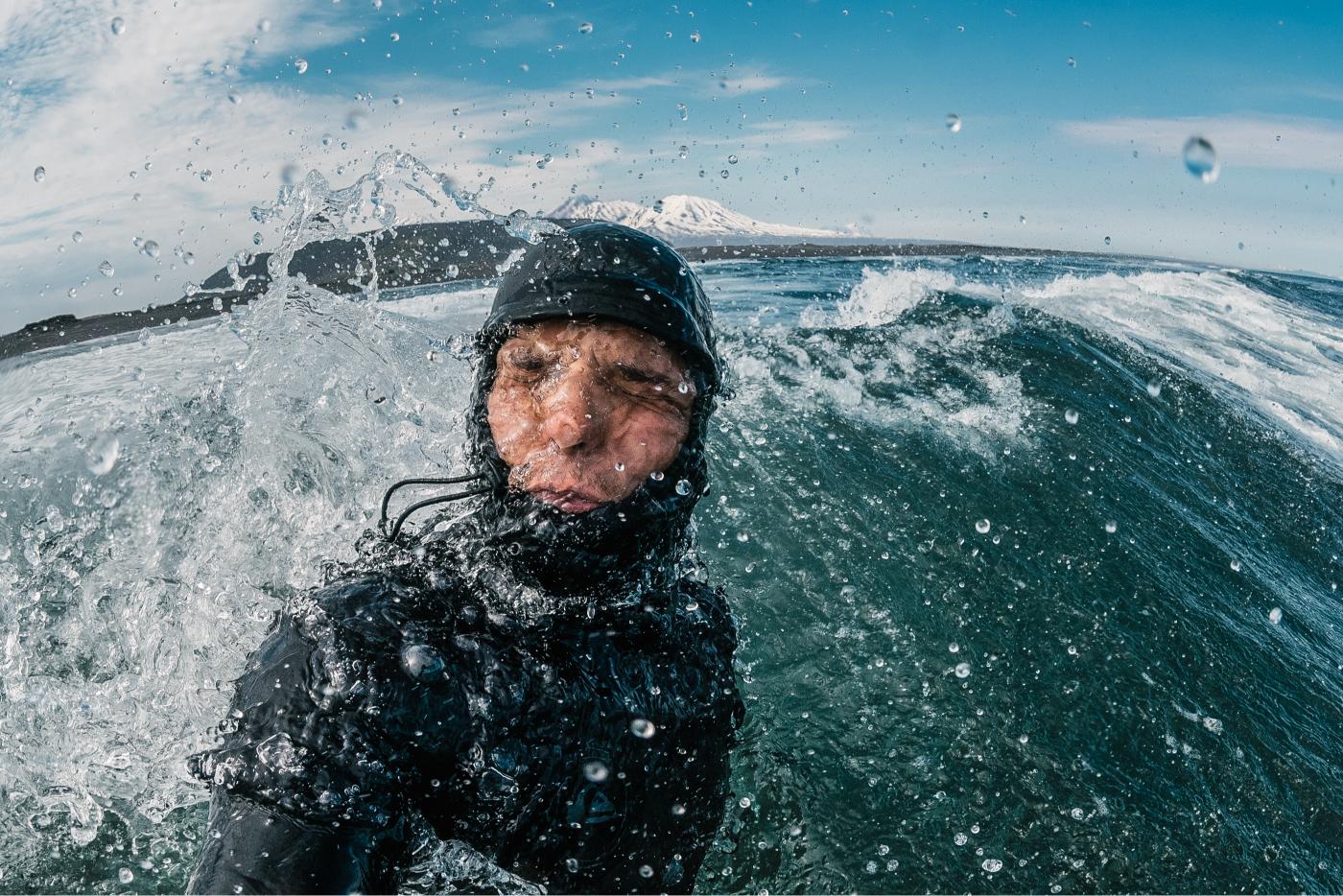
Near the end of his first tour of duty in Afghanistan, U.S. Army Pfc. Sean Ambriz counted the days until he could come home.
Ambriz had an extraordinary year in-country. He was in a military police unit but – given the short-handed nature of the American operation in Afghanistan – ended up serving on dozens of combat missions, often as a medic. One of those missions, in particular, forever changed him.
On Sept. 10, 2009, Ambriz was sent on a “Quick Reaction Force” mission to help cavalry scouts who were pinned down by Taliban snipers in a mountain valley. Two were wounded and one was dead. Things went awry almost from the outset.
A team of eight men went after the downed men. They climbed more than 2,000 meters under intense enemy fire. The team was mistakenly told by radio that the men were at 200 meters, so they had little water or equipment. It took two hours to find the scouts, and then they had to run under the cover of white phosphorous mortar supplied by Kiowa helicopters to reach the fallen men without getting shot by snipers.
Still under constant fire, Ambriz treated the wounded and – without so much as a stretcher – he and his fellow soldiers carried both the wounded men and the dead man back down the mountain. They continued to take fire all the way; at one point, a rocket-fired grenade landed near Ambriz and rock collapsed on top of him, dislocating his shoulder. The team didn’t make it back to their vehicles until after nightfall, dehydrated and exhausted. But they’d saved the lives of two men.

He returned to the U.S. last June a different person than the 20-year-old kid who’d left. He’d seen things – the faces of the casualties he’d treated, the bravery and selflessness of the men he served with and, in a very real way, his own mortality. He looked forward to the simple things in life, such as driving down a road without worrying about getting blown up or shot at.
In September, he was promoted to Sergeant. It was an unusual honor for somebody so young – he is only 22 – but he’d racked up all the necessary points. Then, in April, he made an unusual decision – he volunteered to return to Afghanistan earlier than he would have been required to. He knew there was a shortage of officers, and he simply wanted to help.
“I figured, ‘Well, I’ve been there. I just got back. Maybe I can help them through my experience,’” Ambriz said in an interview conducted via Facebook last week.
Ambriz, a Redondo Union High School graduate, returned to action as a highly decorated war veteran. After his first tour of Afghanistan, he was awarded a Purple Heart, an Army Achievement Medal, a Combat Action Badge, a Driver’s Badge, and an Army Commendation Medal. Perhaps most significantly, he earned one of the armed forces’ most esteemed honors – a Bronze Star with the “V-device,” awarded for valor during combat. He earned his star on that mountain rescue mission. But he didn’t require a medal to remember that day; the experience lingers constantly in his mind.
“Every day,” he said. “There is not a day that goes by that I don’t think of Sept. 10, 2009.… All the casualties I’ve ever worked on, too, all their faces, the smell of blood. I have a tattoo now on my arm [representing] all those people.”
He now finds himself leading younger men than himself on missions. Ambriz is serving with the 127th “Speed and Power” Military Police Company, part of the 159th Battalion. The company’s primary task is to train the Afghan National Police. He can’t say where he’s stationed due to Army confidentiality requirements.
“I’m in the city now,” he said. “Last time I was in the heavily fought mountains – there’s not as much fighting going on in the city. I mean, there’s still IED’s [Improvised Explosive Devices] and stuff going on, but a place like I’m in you got out and find intelligence to stop fighting going on in the outskirts. And we find a lot of IED’s, too.”
Ambriz reports that the Afghan police are consistently becoming a more functional force.
“You can tell they are starting to get a grasp on what needs to be done,” he said. “Plus, the less fighting we are in just shows that we and the Afghan forces are doing our job against the A.A.F. (Anti Afghan Forces i.e. Taliban).”
“I do feel very accomplished to be a part of something like this,” Ambriz added. “We’ve made mass progress through the years, especially with this being the year of catching Osama.”
In May, on the day Osama bin Laden was killed by American forces in Pakistan, troops in Afghanistan felt a sense that something tangible had been gained through their long years of sacrifice. But it wasn’t about one man, and it wasn’t something that was overtly celebrated.
“I remember that morning we found out, I walked into the DFAC, grabbed some food, and saw on TV people all around the world celebrating,” he recalled. “You would think we would be celebrating the loudest, standing on tables and chairs. But it was dead silent in there. People went about their business. I just looked at my friend and said, ‘Yup, the world celebrates. We are still here. Well, I’m going to grab some food and get ready for this mission…’ Just because he is dead doesn’t mean we are out of a job.
“We still have a mission to do, and just because he’s gone doesn’t mean someone isn’t ready to step up in his place. We are still here fighting, away from our families. So to us, it was a regular day in history.”
Ambriz derives comfort from his plans to start a family. He is engaged to Aimee, whom he met in Colorado Springs in between his tours of duty. She sends him care packages and they talk on Skype or Facebook nearly every day. They already have a family of a sort, if you count a 17-pound cat that thinks he’s a dog.
“He’s the best,” Ambriz said. “We always laugh about him. I’ll call and she will be like, ‘Yeah, I’m trying to sleep but your cat who thinks he’s a dog is snoring and hogging the bed so I’m just going to sleep on the floor and let his fat ass keep the bed….’ Her and that car are so funny. I swear she’s just like me. We have funny personalities and laugh at the stupidest things.”
There have already been some tough days in this deployment. Last week, he learned that one of his sergeants from his first tour, Sgt. Joshua Powell, died when an IED exploded under his humvee. He was 28 and serving on his fourth combat tour. Like Ambriz, he’d volunteered to go back to Afghanistan.
“I didn’t know he’d come back,” Ambriz said. “Last year, we all came home alive. Our platoon was really close. He’s the first one in our platoon to die. It sucks. He was a hell of a leader. When I was a soldier he was hard on us, but he made a lot of us who we are today.
“One thing I’ve noticed I didn’t think I would, coming back here – I was like, ‘Okay, I’ve got this, I’ve done this before.’ But no matter how crazy your last tour was, it follows you – the hardship of war and its darkness never leaves you.”
Ambriz has a single-minded focus as a sergeant — to do what Powell and the other officers he served under managed to do and bring all his men back home alive. He has two young soldiers in particular, Pfc. Angel Garcia and Pfc. Christopher Melton, both fellow Californians, whom he is determined to help.
“Hell of soldiers, hard working, and very funny,” Ambriz said. “I got the best team. One time we ran five days straight missions with under six hours sleep, and I was yelling at my squad leader that my soldiers needed sleep, and I looked at Garcia and said, ‘Look at him, he’s tired. Garcia, go to sleep!’ And, well, he literally closed his eyes and hit the ground and started sleeping on the rocks – he didn’t go to his bed. That’s a good soldier. He does what I tell him to do, no questions asked.”
Ambriz is thankful for his experience, tough times and all, and feels as if he has developed leadership qualities he couldn’t have in any other way. “I’ve been blessed,” he said. But regardless of his medals or his rank, he dislikes any suggestion of heroism.
“I’m not a hero. Sgt. Powell is a hero,” he said. “A true hero is what Sgt. Powell did for me and all my guys. He taught us how to be soldiers and future leaders. And he gave his life on a volunteered deployment, a deployment he didn’t have to be on, but he stepped up. I’m just trying to learn and do the same thing my sergeants would do for me. I look up to all the sergeants I fell under who were in my platoon – they were a great group of officers, and I want to carry that on.”
Read the longer feature story on Ambriz and his Sept. 10 2009 mission.







